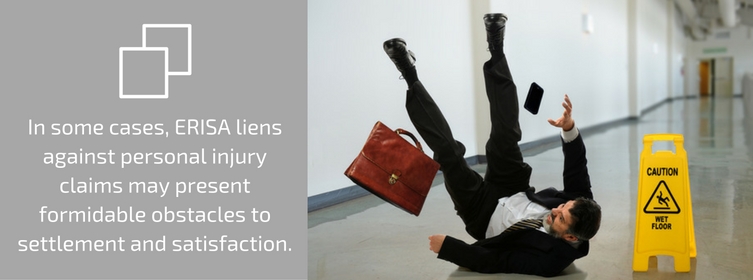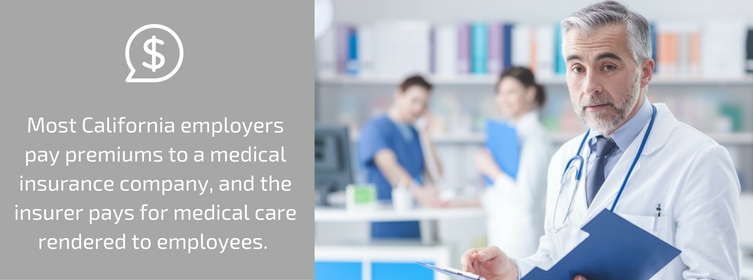Let’s say that you have been seriously injured by a negligent driver in a traffic crash in southern California. You take the case to an experienced Orange County personal injury lawyer who can obtain a fair settlement on your behalf. If your attorney agrees to take the case on a contingency basis, you will have to pay the attorney his or her share of the settlement, but apart from that payment, the settlement money is yours, right? Not necessarily.
Most accident victims who file personal injury claims in California simply presume that any funds they receive through a settlement or a verdict will be divided exclusively between themselves and their personal injury attorneys. If you pay insurance premiums or receive benefits through your employer, you may assume that your health insurance plan has no share in any recovery you might obtain through an injury claim. That is not a wise assumption to make.
Most health insurance plans include subrogation and reimbursement clauses that give the plan a percentage of an injury victim’s damages, despite the absence of any agreement with the victim’s lawyer and without regard to the severity or the extent of the injuries. In the case of self-funded ERISA medical plans, the reimbursement that is required can sometimes constitute as much as one hundred percent of the damages a victim receives. Thus, in some cases, ERISA liens against personal injury claims may present formidable obstacles to settlement and satisfaction.
HOW DO “SELF-FUNDED” PLANS DIFFER FROM “INSURED” PLANS?
Most California employers pay premiums to a medical insurance company, and the insurer pays for medical care rendered to employees. These are called “insured” plans. However, under a self-funded ERISA plan, the employer – not an insurance company – pays from its own pocket for all medical care. However, employers with self-funded ERISA plans hire insurance companies to administer the plans. Thus, most employees under self-funded plans do not know that their plans are self-funded – their insurance card has the managing insurance company’s name on it, so they assume that medical care is paid by the insurance company itself rather than the employer.
But if medical care is paid by the employer’s self-funded plan, and if you then receive compensation through a personal injury claim, you might have to pay back the health plan – for the medical care you received – from your compensation. In 2006, in Sereboff v. Mid Atlantic Medical Services, Inc., the United States Supreme Court upheld the right of ERISA plans to be fully reimbursed for whatever medical care they provide.
WHAT HAPPENED IN SEREBOFF V. MID ATLANTIC MEDICAL SERVICES?
The case came from here in California, where Marlene Sereboff and her husband, Joel, received health insurance under her self-funded employer-sponsored plan. Mid Atlantic Services sponsored the plan, which was covered by ERISA. The plan clearly spelled out that if the Sereboffs were injured or became ill because of someone else’s negligence, and if they later recovered damages from for the injury or illness, the Sereboffs would have to pay back Mid Atlantic Services for the medical benefits they received.
The Sereboffs were injured in a traffic collision, and Mid Atlantic’s self-funded plan paid about $75,000 of their medical costs. Mid Atlantic then informed the couple that it was placing a lien on any damages they recovered. The Sereboffs settled their claim for $750,000, but they did not pay Mid Atlantic. Mid Atlantic sued to enforce the lien. The trial court found in Mid Atlantic’s favor. The Sereboffs appealed, but the Fourth Circuit Court and a unanimous U.S. Supreme Court agreed with the trial court.
Usually, self-funded plans are provided to employees only by the largest corporations – employers with assets sufficient to handle the risk of self-funding. Most self-funded plans reject any obligation to share in the cost of winning a verdict or a settlement, and most self-funded plans claim as much as one hundred percent of the verdict or settlement even if the victim ends up without a cent. California accident victims whose health plans are self-funded are often stunned when they learn they will receive nothing.
An ERISA plan seeks to be paid first. The plan’s provisions give it the right to be paid before anything is paid to the injury victim or to the victim’s attorney. There have been far too many cases where a healthy adult sustains catastrophic injuries resulting in quadriplegia, paraplegia, and/or permanent disability, and the plan has successfully sought repayment – despite leaving not one cent for the disabled beneficiary. ERISA self-funded health plans will not hesitate to sue permanently disabled beneficiaries to obtain what they want.
One example of what can happen is the South Dakota case of Janet Hofer, who sustained serious injuries as a motorcycle passenger and incurred medical expenses totaling over $400,000. Ms. Hofer recovered $250,000 from a liability insurer, but she was sued for the $250,000 by her employer. In 2007, the federal district court in the Western Division of South Dakota ruled in favor of the employer. Despite her injuries, lost wages, and all of her efforts, Ms. Hofer lost the entire $250,000 and ended up with nothing.
ARE INSURED PLANS BETTER THAN SELF-FUNDED PLANS?
Unlike self-funded plans, insured plans are usually required by state laws to pay a fair share of attorneys’ fees, and insured plans are limited by law to only a portion of the personal injury verdict or settlement. California law limits insured plans to one-third of the verdict or settlement amount. Do not let fear regarding your health plan keep you from seeking justice if you have been injured. An experienced Orange County personal injury lawyer will make every effort to reduce the amount a client must pay to a medical plan, whether that plan is self-funded or insured.
After any traffic collision, seek medical attention at once. Even if you don’t “feel” like you’ve been injured, some injuries are hard to detect immediately, but they can emerge later as serious medical conditions. Take photos of the vehicles, the accident scene, and your injuries. Call the police to the scene and make sure that you obtain a copy of their accident report. Most importantly, get all of the other driver’s contact and insurance information. If the other driver is too injured, intoxicated, or hostile to cooperate, ask the police to help you obtain the information you need.
California law provides that the victims of negligence are entitled to complete reimbursement for all of their medical expenses, lost wages, and related damages. If you have been injured by another person’s negligence, and if your healthcare coverage is through your employer, find out if your plan is self-funded or insured. If the plan is self-funded, you’ll need to discuss with your attorney how and whether to proceed with a personal injury claim.









